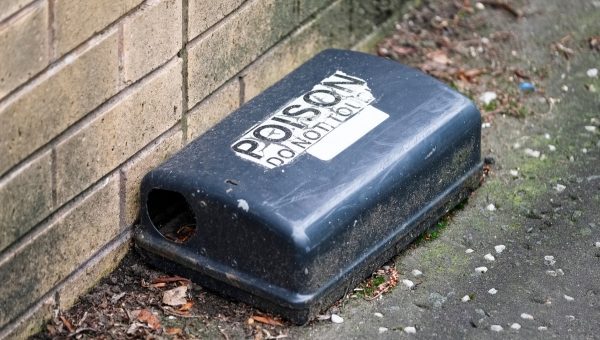05
Oct
Pittsburgh-Area Pesticide Poisoning: InTown Suites Residents Return After Rat Poison Incident

(Beyond Pesticides, October 5, 2023)Â Residents of a Pittsburgh, PA-area extended-stay hotel were evacuated due to a contamination and poisoning incident caused by rat poison. The chemical involved in the incident has not yet been revealed, but officials say the rat poison, when exposed to water, releases the highly toxic phosphine gas. According to the Centers for Disease Control and Prevention (CDC), the gas is known to cause a range of symptoms, including nausea, vomiting, stomach pain, diarrhea, thirst, muscle pain, difficulty breathing, and the accumulation of fluid in the lungs. Higher exposures and prolonged exposure to phosphine can result in more severe health consequences.
EPA has found that phosphine gas causes: Acute (short-term) inhalation exposure to phosphine may cause headaches, dizziness, fatigue, drowsiness, burning substernal pain, nausea, vomiting, cough, labored breathing, chest tightness, pulmonary irritation, pulmonary edema, and tremors in humans. Convulsions may ensue after an apparent recovery. Chronic (long-term) occupational exposure of workers to phosphine may cause inflammation of the nasal cavity and throat, weakness, dizziness, nausea, gastrointestinal, cardiorespiratory, and central nervous system symptomology, jaundice, liver effects, and increased bone density.
Deputy Police Chief Brian Kohlhepp of Ross Township explained to multiple media outlets that the hotel used rat bait traps around the exterior of the building. According to reports, the traps became saturated with rainwater and released a dangerous gas that poses risks to human health.
The incident, which occurred on September 25, resulted in seven individuals being rushed to the hospital, with an additional four receiving immediate treatment at the scene for exposure to the rodenticide. Hazardous Materials (HAZMAT) teams, local policy, and Emergency Medical Services (EMS) responded to the emergency.
This incident exemplifies the serious limitations of U.S. Environmental Protection Agency (EPA) and the Pennsylvania Department of Agriculture restrictions (so-called risk mitigation measures) of hazardous pesticides, according to Beyond Pesticides. While EPA and the state lead agency (Agriculture Department) apparently recognize the hazardous nature of the rodenticide, it has been registered by EPA and the state for widespread use. This incident reflects the failure of the restrictions in place and the inability of EPA to fully control against adverse effects once released in the environment.
In the case of phosphine, when used as a fumigant, EPA issued the following restriction, which permitted the poisoning incident and evacuation:
Fumigant Management Plans must be written before all applications of phosphine products, including all burrowing pest fumigations. A Fumigant Management Plan is a written description of the steps designed to plan for a safe, legal, and effective fumigation. The certified applicator and owner of the property to be fumigated must characterize the area to be treated and include all safety requirements in the plan before application.
The Pennsylvania incident serves as a stark reminder of the potential dangers associated with pesticide usage and the potential for harm once pesticides are authorized by EPA to be marketed. Beyond Pesticides emphasizes the importance of using nontoxic alternatives for rodent control and encourages families with small children to consider proactive measures, such as sealing gaps around doors, installing door sweeps, and caulking openings around pipes, wires, and vents. The event also sheds light on a much broader and concerning issue that extends beyond the borders of Ross Township – the widespread presence of pesticides in U.S. rivers and streams.
Beyond the immediate exposure, pesticide use results in nontarget exposure, as pesticides move off the target site. The Pittsburgh area has had more than its fair share of chemical spills, with the US Steel Tower leak in April and the nearby East Palestine train derailment in February. Advocates are raising questions about the connection between pesticides, toxic spills, and water quality. A 2020 report by the U.S. Geological Survey (USGS), part of the National Water-Quality Assessment (NAWQA) Project, revealed alarming statistics regarding pesticide contamination in the nation’s waterways. The report indicated that nearly 90 percent of water samples collected from rivers and streams across the United States contained at least five or more different pesticides. This data underscores the extent of pesticide pollution in our aquatic ecosystems.
Pesticide contamination in waterways is not a new issue. A USGS analysis dating back to 1998 already revealed the presence of pesticides in all U.S. waterways, with at least one pesticide detectable. The USGS acknowledges that thousands of tons of pesticides enter rivers and streams from both agricultural and nonagricultural sources, contributing to the contamination of essential drinking water sources, including surface water and groundwater.
What makes this problem even more concerning is the potential for different pesticides to interact synergistically when mixed together. This means that the combined effect of multiple pesticides can be more severe than the sum of their individual effects. As a result, aquatic ecosystems, including fish and other wildlife, are at risk of suffering detrimental impacts due to the presence of these pesticide mixtures.
Recent research by Robert Hunt Sprinkle, M.D. and Ph.D., and Devon C Payne-Sturges Ph.D., catalogs the history of neglect in addressing toxic mixtures and their impacts on wildlife and humans. These authors discuss how exposures to toxicants can occur individually, cumulatively, collectively, and synergistically. Moreover, they discuss the disproportionate harms that are felt in disadvantaged communities.
Beyond Pesticides is calling for the elimination of toxic petrochemical pesticides and fertilizers to protect waterways and reduce pesticide contamination in drinking water. Organic and regenerative farming practices are sustainable alternatives that conserve water, reduce runoff, and eliminate toxic chemicals. Rodent control is one important aspect of reaching Beyond Pesticide’s goal of eliminating pesticides by 2032. For more information about the risks of rodenticides, go to www.beyondpesticides.org/rodenticides and learn about safer alternatives to pesticides at www.beyondpesticides.org/resources/managesafe/overview.Â
All unattributed positions and opinions in this piece are those of Beyond Pesticides.










